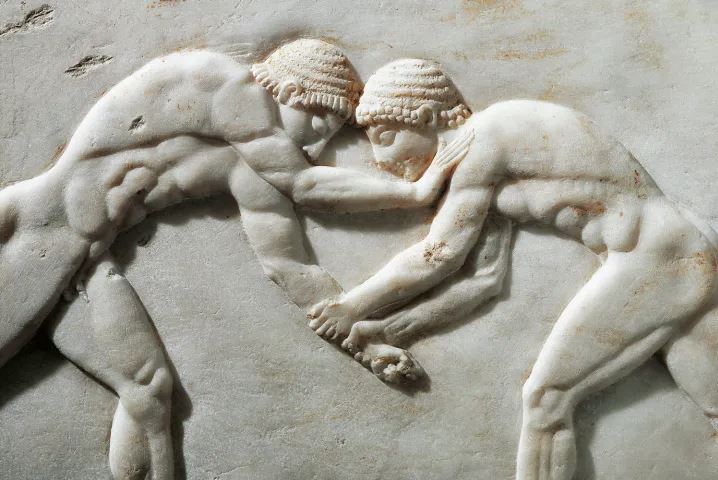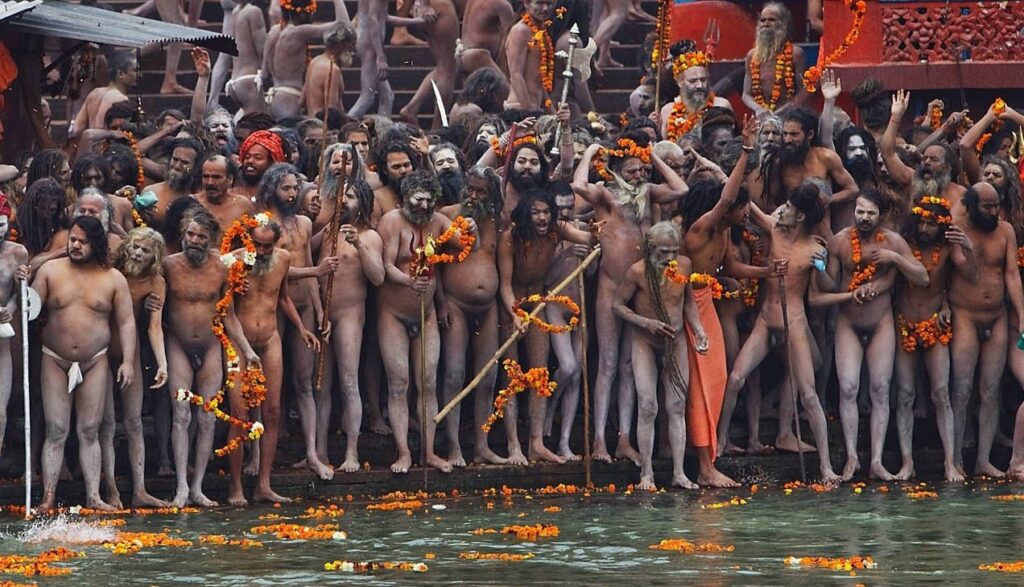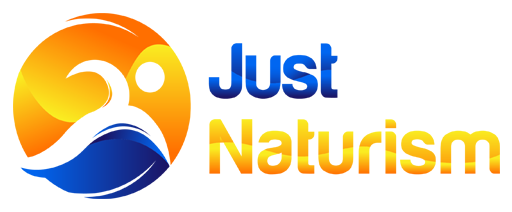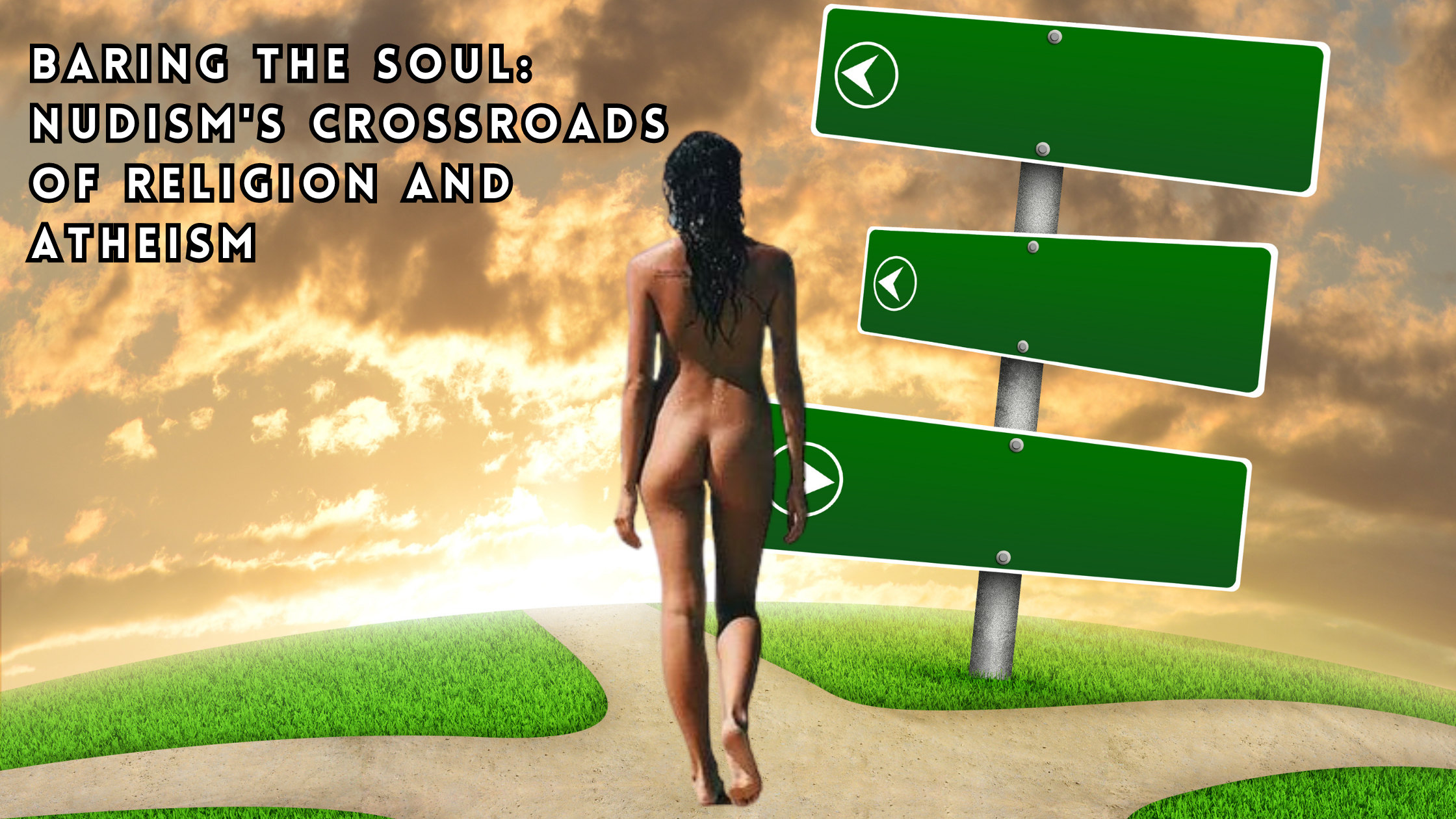Understanding the Intriguing Realm Where Nudism, Religion, and Atheism Converge
In the realm of philosophical and ideological exploration, there are often unexpected intersections that challenge our preconceived notions. One such intriguing convergence lies at the crossroads of nudism, religion, and atheism. These seemingly disparate concepts provoke curiosity and invite us to delve deeper into their underlying principles and beliefs.
Nudism, a lifestyle choice centered around the practice of social nudity, has been embraced by individuals seeking freedom from societal norms and a deeper connection with nature. On the other hand, religion has long been a source of guidance and spiritual fulfillment for many, offering a framework for understanding the world and one’s place within it. Atheism, in contrast, rejects the belief in any form of deity or supernatural power.
At first glance, it may appear that these three realms are incompatible or even diametrically opposed. However, upon closer examination, we discover thought-provoking discussions on body acceptance, personal autonomy, spirituality versus secularism, and the role of tradition in shaping our beliefs.
In this section on understanding the intriguing realm where nudism, religion, and atheism converge, we will explore the nuanced perspectives that emerge from these intersections. Through examining various viewpoints and engaging in thoughtful discourse on topics such as morality, ethics, and human nature, we aim to shed light on this fascinating realm where seemingly contradictory ideologies find common ground.
Join us as we embark on an intellectual journey to unravel the complexities inherent in this convergence – an exploration that challenges our assumptions while fostering greater understanding and appreciation for diverse perspectives.
The Historical Perspective: Tracing the Roots of Nudism in Religious Practices
When we delve into history, we uncover a fascinating narrative that intertwines nudism with religious customs from ancient civilizations. Across different cultures, the act of disrobing carried symbolic meaning, symbolizing a return to our inherent essence and establishing a profound link to the divine. Ancient Greece had a unique perspective on nudity. They viewed it as a form of celebrating the physical and spiritual purity, which was evident in practices like the Olympic Games. Athletes competed without clothing as a way to pay homage to the gods. Many indigenous cultures across the globe had a tradition of embracing ceremonial nudity as a means to connect with nature and honor their ancestors. Through these ancient practices, they recognized that being naked could transcend physical constraints and create a profound link to the divine realm. These customs shed light on the deep-rooted belief in the sacred power of nudity. When we delve into the history of nudism, we discover a fascinating connection between nudity and spirituality that has endured across centuries. This intertwining goes beyond time and reflects humanity’s innate longing for a more profound connection with oneself and the vast universe that surrounds us.

Nudity as a Spiritual Expression: Examining How Some Religions Embrace Nakedness
Across a wide range of cultures and religious practices, the concept of nudity has often been associated with spirituality. It has been seen as a significant and deeply meaningful way to express one’s spiritual journey. Throughout history, certain religions have incorporated the practice of being nude as a means to forge a profound connection with the divine and achieve a heightened sense of spiritual awareness. This ancient tradition persists in various forms within contemporary religious practices. In certain sects of Hinduism, there is a unique perspective on nudity. It is seen as a way to release oneself from societal constraints and embrace purity in its true form. Within the framework of Shintoism, the act of bathing unclothed in natural springs holds great significance as a ritual of purification. This communal practice allows individuals to purify not only their physical bodies but also their spiritual selves by connecting with the awe, inspiring power and harmony of nature. Similarly, in specific of Christian mysticism, the act of being naked has been interpreted as a symbol for reclaiming a state of purity and innocence. This belief aligns with the biblical concept of being “naked and unashamed” in the presence of God. These illustrations serve to emphasize the profound potential of nudity as a means of spiritual connection within religious practices. They shed light on the intricate relationship between the physical realm and the divine, showcasing how nudity can facilitate a transcendence of material boundaries towards a deeper engagement with the spiritual realm.

The Clash of Beliefs: How Religious Doctrine Views Nudity as Taboo or Immoral
The clash of viewpoints around nudity highlights the contrasting perspectives within religious doctrines. Many religions view nudity as taboo or immoral, while simultaneously recognizing the human body as a sacred creation endowed with divinity. Sometimes, these beliefs can result in the establishment of strict modesty codes and a strong emphasis on hiding one’s body. Nudity, which is considered an act of exposure, may be viewed as inappropriate or sinful as it goes against the boundaries established by these principles. The clash mentioned here arises from a complex interplay between two contrasting elements: the deep respect for the human body as a sacred creation, and concerns related to immodesty or transgressions against established moral principles. This tension reflects a broader societal struggle to navigate between honoring our physical selves and adhering to ethical values. The intricate connection between religious teachings, attitudes towards nudity, and their impact on spirituality, societal norms, and personal expression is a fascinating subject to explore. By delving into this complex interplay, we can gain valuable insights into the nuanced dynamics at play within these realms.
Atheism’s Take on Nudity: Exploring the Connection Between Non-Belief and Body Liberation
The perspective of atheism when it comes to nudity provides an interesting viewpoint for individuals as they navigate the complex relationship between personal freedom, body positivity, and societal norms. As atheism is rooted in a lack of belief in deities, it often places emphasis on rational inquiry and a naturalistic worldview. This can lead to a deeper exploration and understanding of the significance of nudity in relation to these broader concepts. This approach is in line with the principles of body liberation. Atheists often reject supernatural explanations and instead embrace the belief that the human body is a result of evolution and biology. By doing so, they prioritize understanding and appreciating our bodies in a naturalistic context. Nudity, for numerous atheists, symbolizes a refusal to conform to religious modesty standards and serves as an expression of personal autonomy and agency over their own bodies. By embracing nudity, they transcend societal expectations and choose to define their own boundaries. Through the acceptance of nudity, atheists can perceive themselves as liberated from the limitations imposed by divine scrutiny. This allows them to engage in a unique form of self-expression that highlights human autonomy and a profound connection to the environment. The association between atheism and nudity serves as a compelling example of how individuals strive to challenge societal norms in their quest for authenticity and individuality. It underscores the broader theme of breaking free from conventional expectations and embracing one’s true self.
Societal Challenges and Acceptance: Analyzing the Reaction to Nudist Communities with Religious or Atheistic Affiliations
Nudist communities that align themselves with religious or atheistic beliefs often face a challenging intersection between societal perceptions and norms. The contrast between embracing nudity, which challenges conventional ideas of modesty, and deeply held belief systems can evoke diverse reactions from individuals. Communities, whether they have religious or atheistic viewpoints, often face a complex challenge when it comes to navigating the balance between modesty and nudity. From religious perspectives, there may be internal debates about how to address this perceived conflict. On the other hand, atheistic communities may prioritize individual freedom and naturalism. Both sides encounter a diverse landscape of acceptance and resistance where finding common ground can be intricate. By delving into these reactions, we gain insight into the larger social dynamics of how individuals navigate the balance between personal identity and prevailing societal norms. It also sparks conversations about the intricate relationship between faith, atheism, and embracing one’s physical self.
The Complex Nexus Where Individual Beliefs Collide With Societal Norms in the World of Nudism.
The realm of nudism exists at a fascinating intersection where personal beliefs and societal norms converge. It serves as a captivating space where individual convictions and cultural expectations intertwine, prompting deep contemplation and introspection. Within this distinctive domain, essential inquiries surrounding self-expression, freedom, and authenticity take center stage. People find themselves grappling with the delicate balance between their deeply-rooted convictions and the societal norms imposed upon them. The decision to embrace nudism prompts intriguing questions about personal autonomy and the quest for authentic self-expression, whether influenced by religious beliefs that advocate modesty or secular philosophies that prioritize individual sovereignty. The discussions on body positivity and acceptance have a much broader impact. By questioning the established norms and prompting us to rethink our long-held beliefs, they compel us to consider the complex connection between our personal convictions and society’s perceptions. By exploring nudity within a broader context, we can ultimately reveal the intricate and diverse aspects of human identity.
We always in need for your support, Please sign up here and join us!
Share this blog:




Get involved!
Comments